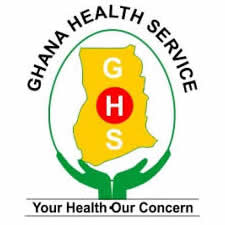Getting to the Heart of Stigma
“The multi-layers and intersectionality of stigma have been the biggest barriers to ending AIDS even though we have all the scientific advancement and tools that can get us there.” This formed part of the opening remarks by A. Kamarulzaman (IAS President) at a pre-conference session on stigma at the ongoing AIDS 2022 Conference. It was further revealed that PLHIV suffer stigma primarily due to the notion that they are capable of and do transmit the virus to others. However, advancement in science and recent evidence such as U=U prove that this notion is not entirely valid. The public have therefore been urged to “follow the science” and disregard myths and perceptions that fuel stigma and discrimination.
It was highlighted that even though violent stigma might not be prevalent in 2022, other forms of stigma are pervasive. As reported, stigma is rife in many health care settings and constitute a barrier to service access and continuity. Stigma and discrimination, as submitted, intersect with other factors such as gender and social class hence the need for more linkages to be recognized between stigma, inequality and health outcomes.
To address stigma, it was strongly emphasized that ‘language matters’, especially the language of research about indigenous people. In a word cloud on HIV research about indigenous Canadian people, it was highlighted that the words used told dangerous and stigmatising stories about indigenous people and therefore disempowering. Consequently, there was a call to utilize approaches that empower people. Additionally, there was the call for institutions to partner with HIV communities to be agents of change against stigma and discrimination against PLHIV.
Political leaders, funders, village leaders, faith leaders, have been called to stand alongside marginalized communities and provide meaningful and impactful support in the form of financial resources for community-led responses, for community-led service delivery, and for advocacy. Support could also mean creating spaces and recognition in decision-making spaces for the marginalised. There was a call for ‘far greater’ investment in community systems, community responses, community engagement and leadership, and in programmes to reduce stigma and discrimination and invest in tools such as the PLHIV stigma index. This is due to the recognition that communities have been at the forefront of challenging stigma and continue to restore dignity and resilience of PLHIV. More investments and funding is needed to keep up the fight because community responses are expensive. Bold and resilient leadership matter and makes a difference in contributing to dismantling harmful stigma and discrimination.
Findings presented from a systematic review showed that community participation, providing education, providing counselling, providing access to HIV specialist and engaging a support person contributed to the success of stigma interventions. It was revealed that interventions which combined all five factors ‘showed consistent success.’ Moreover, it was revealed that ‘how’ stigma interventions are implemented is equally as important as ‘what’ is being implemented.
Addressing stigma against PLHIV should not be focused on ‘getting PLHIV to do what service providers want them to do’ because that puts PLHIV in an equally disempowering position as stigma itself. Rather it should be ‘because we actually care about the dignity of people living with HIV, and we see PLHIV in all their diversity as a fundamentally valued members of our shared community and what affects PLHIV affects all of us.”
Exploring stigma from a power perspective, a probing question was asked, i.e., ‘in what way does the devaluing of PLHIV in all their diversity serve to maintain current power structures?’ It was consequently suggested that to address the power imbalance, there is the need to ensure that PLHIV lead anti-stigma interventions and research.

